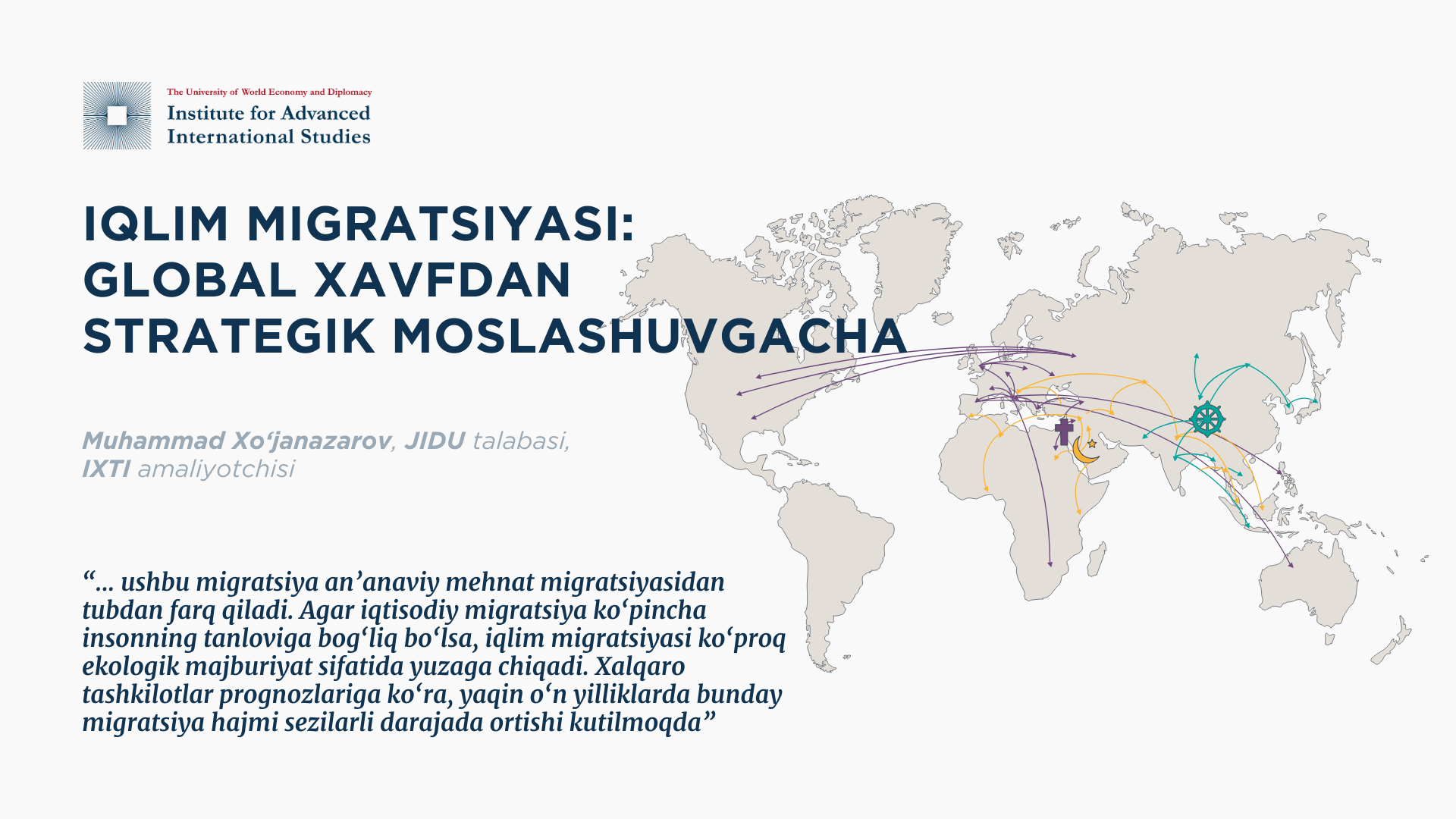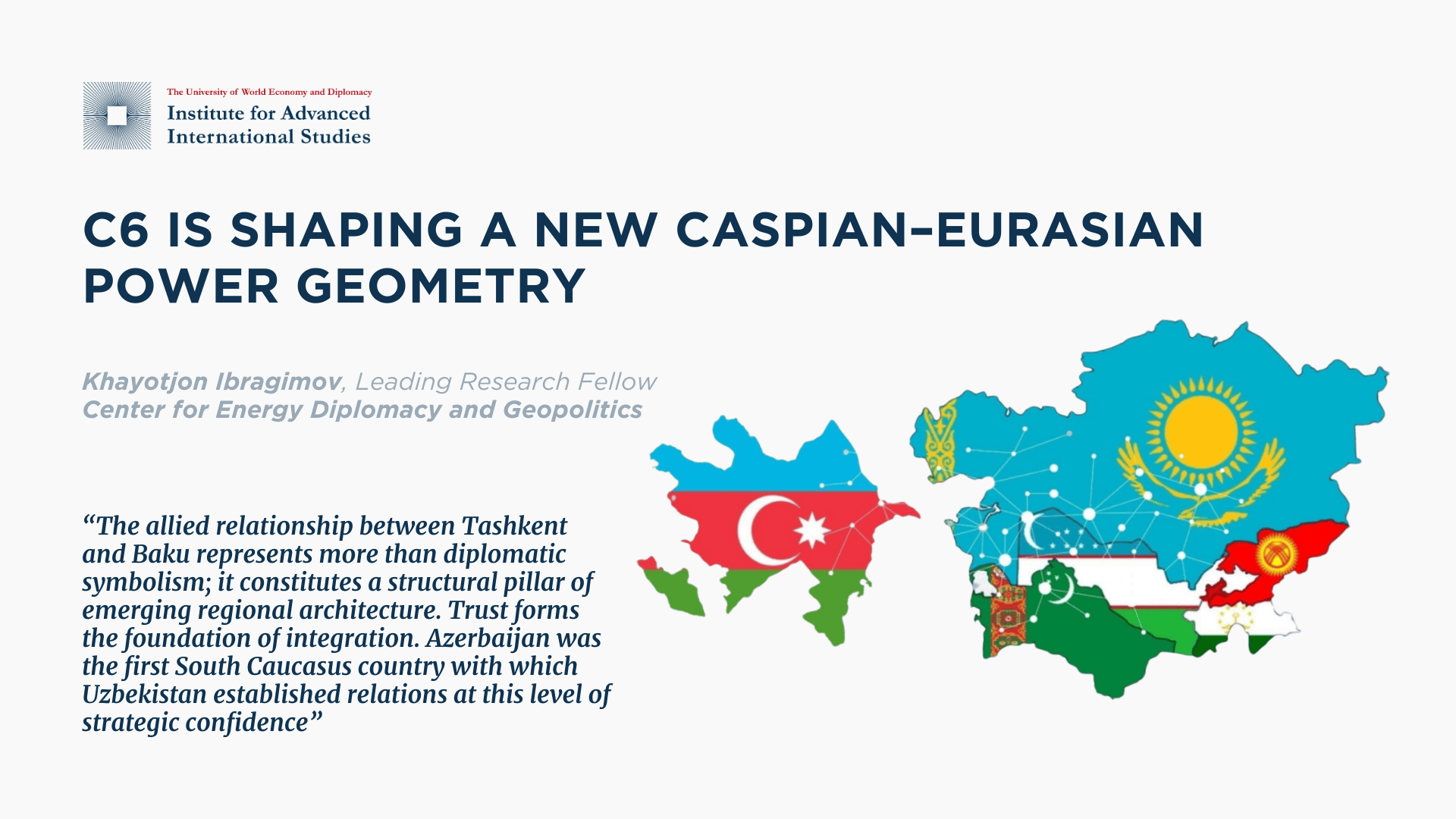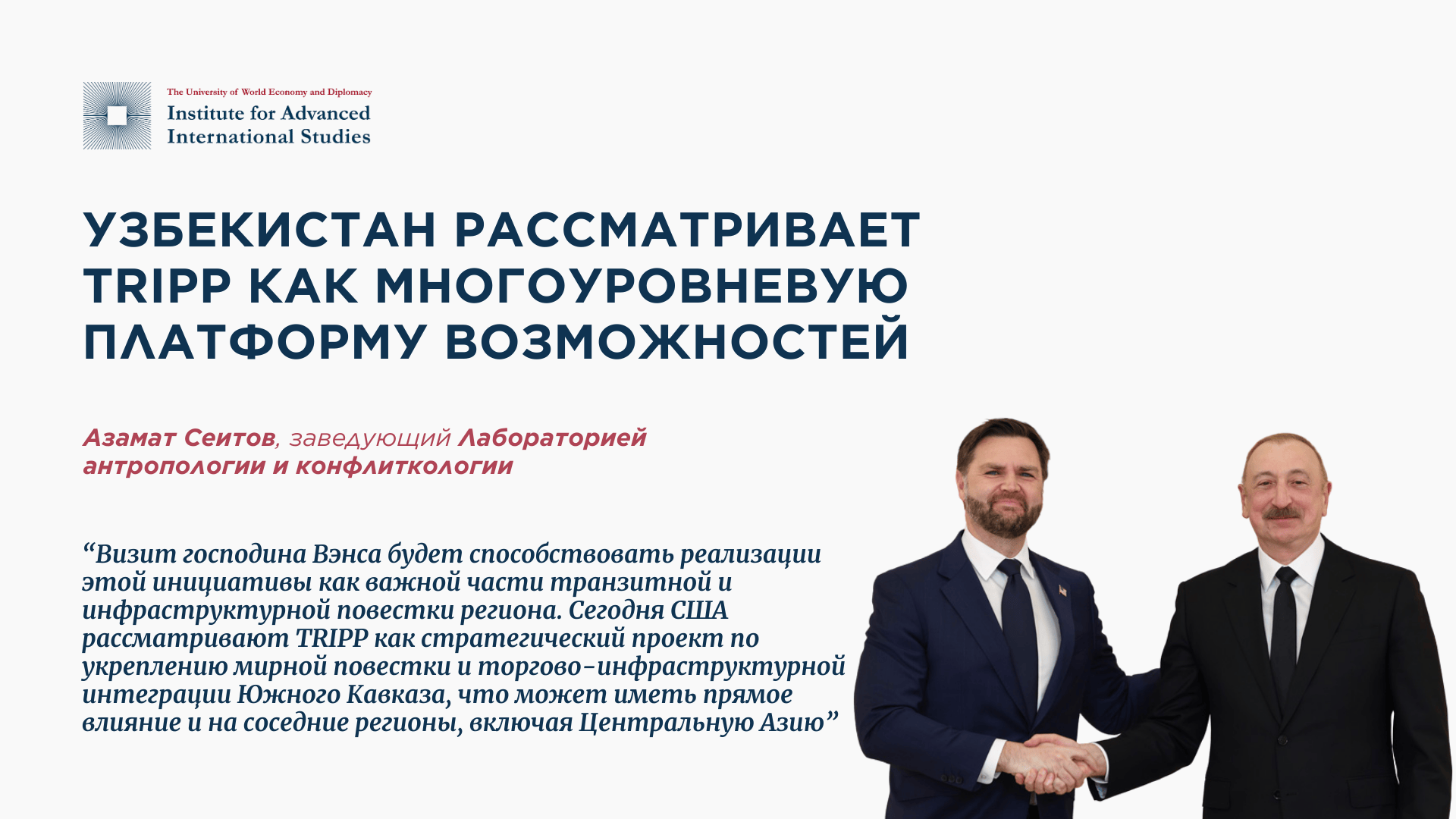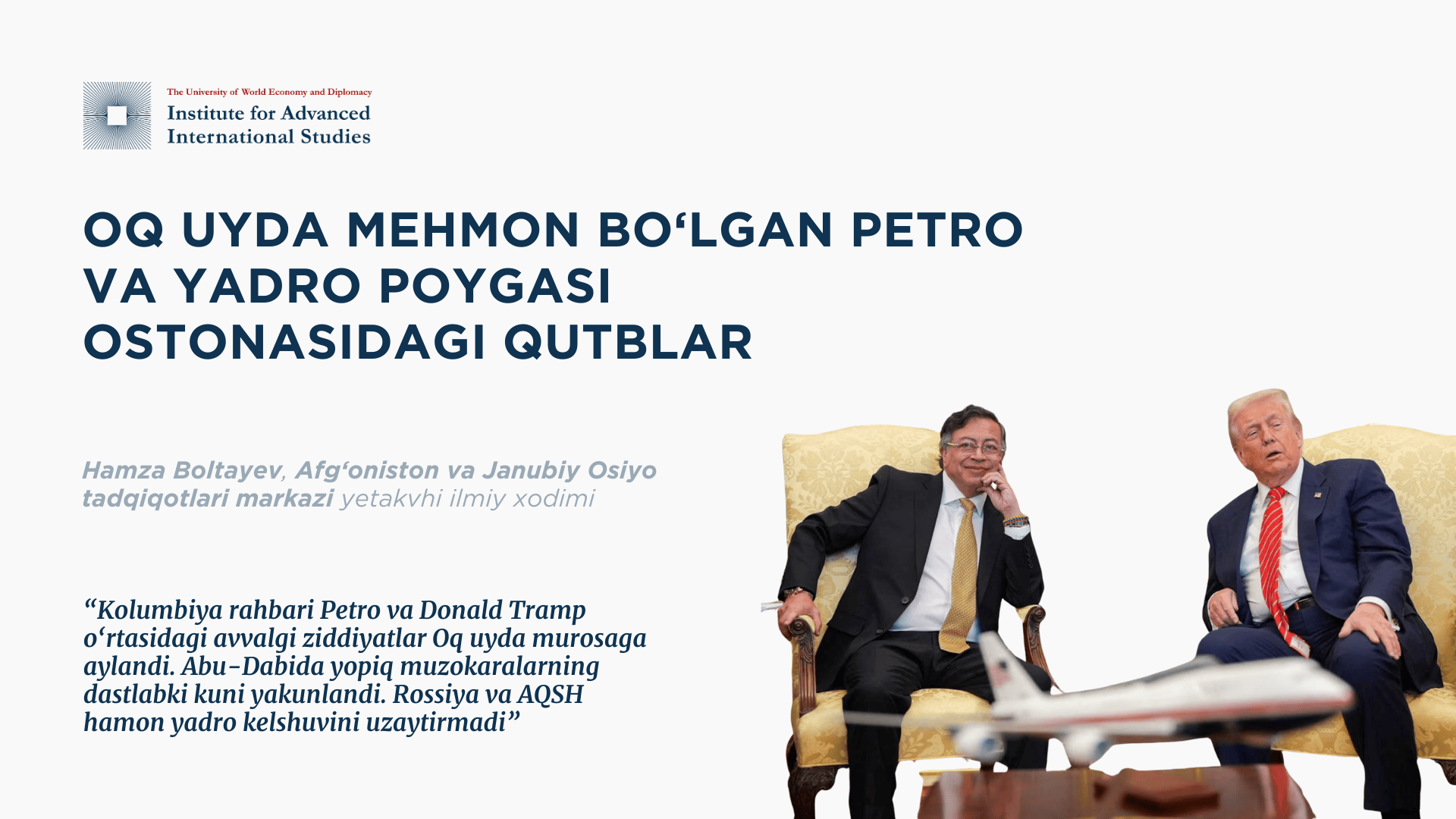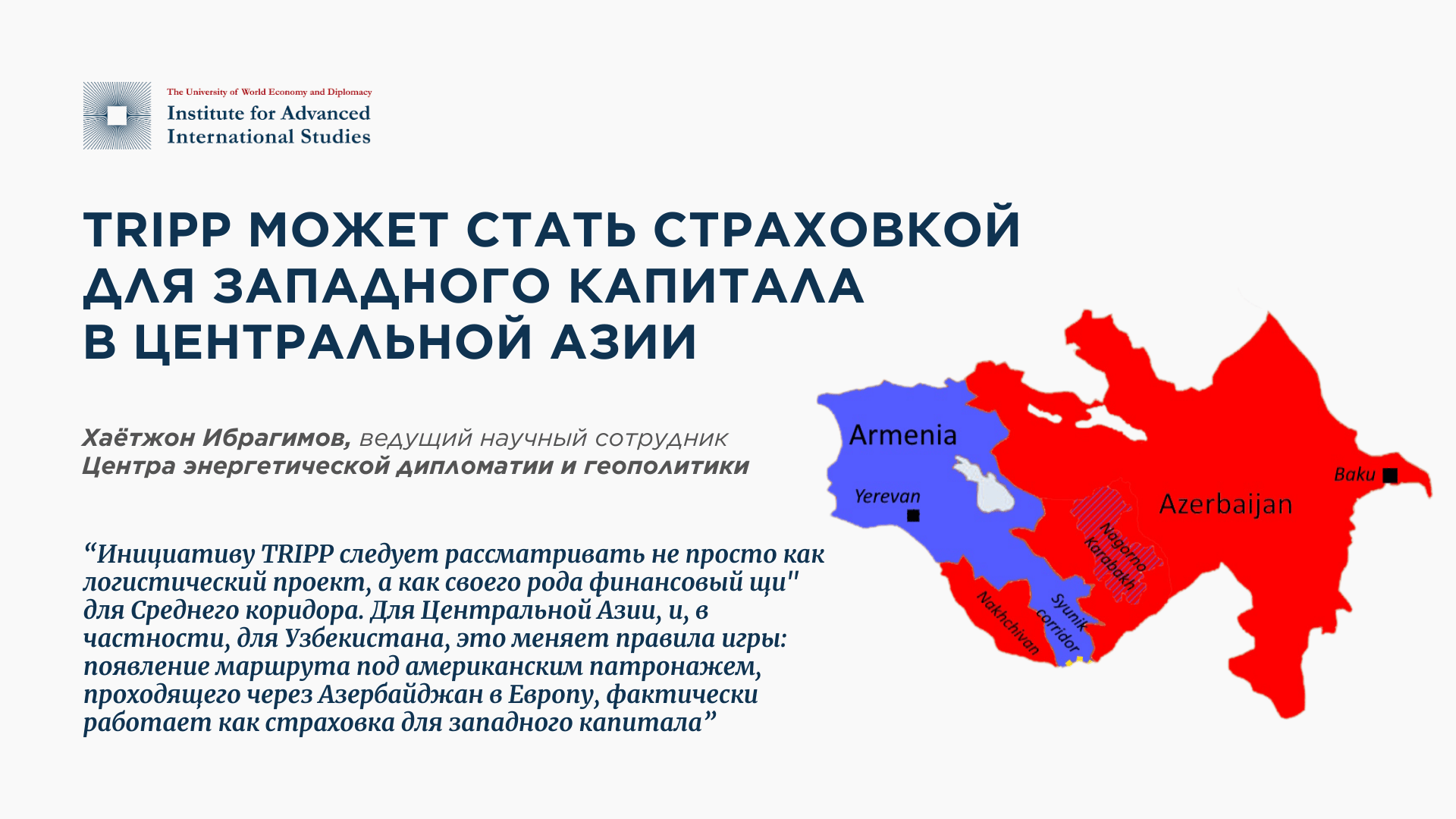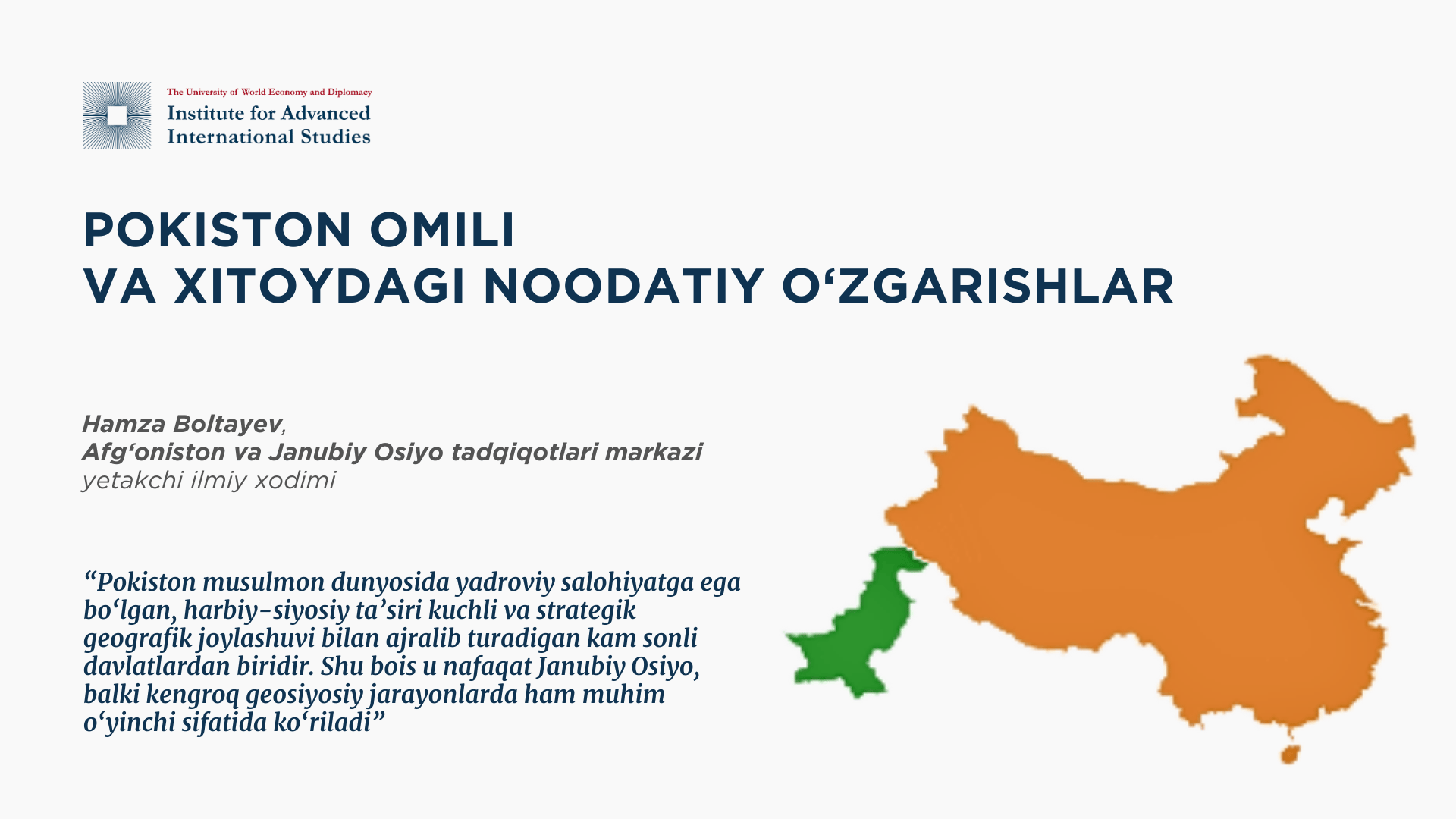As Mukhammad Khodjanazarov notes, in recent years climate change has become not just an environmental phenomenon, but one of the most important factors shaping global socio-economic and political processes. Rising temperatures, decreased precipitation, uneven distribution of water resources, and land degradation are increasingly limiting the ability of millions of people to live and work. As a result, a new type of migration is emerging: climate migration.
The author notes that this migration is fundamentally different from traditional labor migration. While economic migration often depends on an individual's choice, climate migration arises more as an environmental necessity. According to forecasts from international organizations, the scale of such migration is expected to increase significantly in the coming decades. In particular, according to the UN, by 2050, more than 200 million people worldwide may be forced to find a new place to live due to climatic conditions.
The article emphasizes that factors such as water scarcity, drought, extreme heat waves, and land degradation pose a serious threat, especially to populations living in rural areas. In these conditions, agricultural productivity declines, sources of income shrink, and people are often forced to move to large cities or other countries. At the same time, the intensification of migration flows creates additional pressure on urban infrastructure, the housing market, the healthcare system, and the labor market.
The author concludes that it is not enough to simply restrict climate migration or combat its consequences. The main task is to reduce environmental risks, efficiently manage water and agricultural resources, and develop a strategic adaptation policy that integrates migration into the economic system. In this way, migration processes linked to climate change can be transformed from a threat into an opportunity for sustainable development.
Read on UzA
* The Institute for Advanced International Studies (IAIS) does not take institutional positions on any issues; the views represented herein are those of the author(s) and do not necessarily reflect the views of the IAIS.

